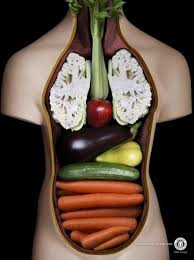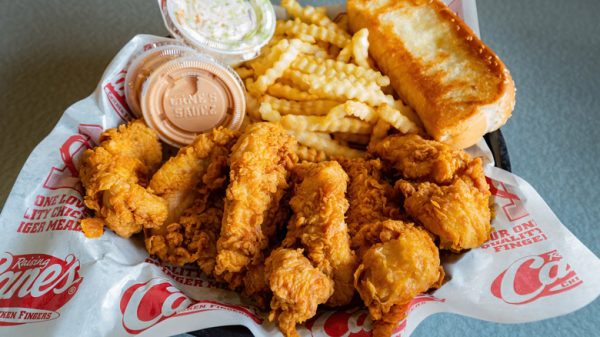Behind the Scenes: How the Food You Eat Affects Your Body

| Would you still eat McDonald’s if you knew it could last the lifespan of an ant in hydrochloric acid? How about frequently eating bacon if you knew that it could increase your chances of colon cancer by up to 6%? As scary as these statistics are, they are true, and what’s even scarier is that these are only a few of the commonly consumed foods Americans eat that have dangerous, life-threatening effects on your body. So put down those delicious french fries, that mouth-watering pizza, and let’s talk about which foods are out to get you, and which ones are out to protect you.
We’ve all scoffed at Snow White’s ignorance when she took a bite of that totally-not-suspicious poisonous apple. But actually, she’s not so different from many of us. We eat foods every day that do our body more harm than good. Some foods, such as tuna, cherries, and almonds, are healthy, but can contain poisonous components that you should beware of. But other foods, such as hot dogs, chips, and even canned goods, are well-known for their high-sodium, high-fat, and high-guilt nutritional values. Foods that contain dangerous quantities of these unhealthy components can increase risks of heart disease and an uncomfortable number of cancers. For example, frequent consumption of processed meats such as bacon, sausages, and pepperoni can increase risks of colon cancer, type 2 diabetes, and heart disease. This is because they have close to no nutritional value and instead contain unnatural, artificial ingredients and chemicals that are not only hard to digest, but make the risk of cancer more likely with their high density of bad fats, which can build up in your bloodstream, arteries, and colon. The Huffington Post states, “The scientific literature [the World Health Organization] examined cumulative meat consumption, and concluded that the daily consumption of 50 grams of processed meat — or, in normal-people terms, about three slices of cooked bacon — increased one’s risk of colorectal cancer by 18 percent.” Chips, french fries, doughnuts, and virtually every other fried food is a culprit, too. Fried foods are high in trans-fats, and, according to Dr. Mercola, an osteopathic physician, “…They not only raise “bad” LDL cholesterol, but also lower levels of heart-healthy HDL cholesterol. High trans-fat intake has been linked to coronary heart disease, in which fatty plaques build up in the heart arteries, sometimes leading to a heart attack.” These foods are well-known for being unhealthy, but, to all those smirking health-nuts out there, I’ve got bad news for you too. Nobody ever suspects the nice ones, right? A shocking as it may seem, some fruits and vegetables can actually be unhealthy for you despite their nutritional benefits. Of course, fruits and vegetables should be part of your daily intake; however, certain ones, if consumed in relatively large quantities, can be harmful to your health: for example, potatoes. Although they contain beneficial vitamins and minerals such as vitamin C, fiber, and potassium, they also contain a large quantity of starches and glycerin, which can be bad for you when accumulated in your bloodstream. Dr. Loren Cordain, a world-renowned dietitian, says, “Because potatoes maintain one of the highest glycemic index values of any food, they cause our blood sugar levels to rapidly rise which in turn cause our blood insulin concentrations to simultaneously increase.” This could lead to a multitude of diseases such as cardiovascular disease, high blood pressure, high blood cholesterol, gout, acne, acanthosis nigricans (a skin disorder), and breast, colon and prostate cancers. Another supposedly healthy food is the mango. Sweet, tart, and the perfect frozen summer treat, right? Well, not exactly. Although it does contain several nutritious vitamins, it also has has several grams of sugar, too. One mango contains 31 grams of sugar-only 6 grams shy of a can of coke! So be careful when eating one, two, or even three mangoes, sharing them wouldn’t be such a bad idea. This article is not meant to persuade you to eat ice cubes for dinner, but merely to inform you about just a few of the many foods that have bad consequences on your body, which by the way, works very hard 24/7 to keep you healthy. Some foods are worse for you than others, and I strongly urge you to take the time to look up the benefits and consequences of foods you often eat; I can assure you, you’ll learn a lot you didn’t know before. Happy eating! |






